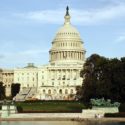Puerto Rico passed a bill called “The Puerto Rico Immediate Decolonization Act of 2017” which sets out the plan for a new status vote in Puerto Rico to be held on June 11, 2017. This bill calls for “a single ballot, which shall include “Statehood” and “Free Association/Independence” as final, permanent, non-territorial and non-colonial status options.”
Puerto Rico Senate President Thomas Rivera Schatz has declared that this plebiscite will be held whether the federal government approves it or not, since the ballot as it is written “meets the conditions imposed by the Congress and the President of the United States upon the approval of Public Law 113-76, the ‘Consolidated Appropriations Act (2014)’; and the corresponding congressional report on said Federal law. ”
This is in response to a plan by “commonwealth” party leaders to lobby the Department of Justice to force a “commonwealth” option to appear on the ballot. The current territorial status was rejected by voters in Puerto Rico in 2012, when 54% voted against it, and the federal government has already stated many times that a non-territorial “enhanced commonwealth” is not a viable option.
But Congress must take action on any change of Puerto Rico’s status.
There are two bills in Congress right now related to Puerto Rico’s status.
Rep. Luis Gutiérrez introduced HR900, which proposes a federal referendum in Puerto Rico between independence and free association. This bill specifies that Puerto Ricans will be able to keep their U.S. citizenship either way. This would actually have to be negotiated between the U.S. and the new nation of Puerto Rico.
Under HR900, statehood would not be an option for Puerto Rico; if signed into law, this bill would effectively kick Puerto Rico out of the United States.
Resident Commissioner Jenniffer González initiated HR260, which says that Puerto Rico should be admitted as the 51st state if the June 11 vote confirms the 2012 vote in which 61% of voters chose statehood as their preferred status among the three options. This bill doesn’t propose a plebiscite, but specifies what should be done if the plebiscite favors statehood.
“An overwhelming majority of the United States citizens residing in Puerto Rico want to replace territory status with a permanent form of government that provides for equality and for democratic representation in the making of their national laws,” HR260 says, and “it is the policy of the United States that the U.S. citizens of Puerto Rico may choose whether Puerto Rico will become a State or a nation through a plebiscite under that law.”
As of this writing, neither of these bills has any co-sponsors. Both have been referred to the Subcommittee on Indian, Insular and Alaska Native Affairs of the Natural Resources committee.








One response
Mr. Gutierrez stop harming P.R. We Puertorricans want to be a state of the American Union.